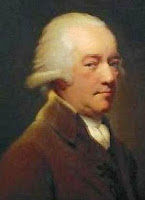From George Marsden's "Mere Christianity: A Reader’s Guide to a Christian Classic":
One of the strongest habits of thought both in Lewis’s day and in our own is to think that newer understandings of the most basic aspects of life and reality are better than older understandings. Lewis, as a student of history, recognized that many of the “latest ideas” of one’s own day will look quaint to future generations. When Lewis himself was on his journey to becoming a Christian, he came to realize that there was good reason to put one’s trust in ideas that had lasted a long time, rather than in the latest fads that would come and go.George Marsden's "Mere Christianity: A Reader’s Guide to a Christian Classic"
He accordingly defined “mere Christianity” as “the belief that has been common to nearly all Christians at all times”. Rather than presenting the latest modern ideas about Christianity, he was presenting an essential Christianity that had been around “long before I was born and whether I like it or not”.
Grounding his presentation in history also meant that he carefully avoided presenting Christianity as a support for some currently fashionable social or political cause — as he put it, like “Christianity and Vegetarianism” or “Christianity and the New Order.” In The Screwtape Letters, the senior devil Screwtape advises the junior devil Wormwood to suggest to his “patient” (the young man who is in “danger” of becoming a true Christian) that Christianity is valuable chiefly for the excellent arguments it provides for the positions of his political party. Such partisanship, Screwtape suggests, would lead the young man away from considering the more essential issues.
Likewise, Lewis was careful to avoid efforts to improve Christianity with modern theological fads. .... (more)









